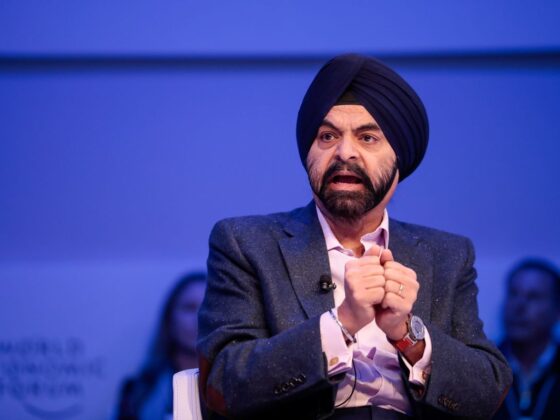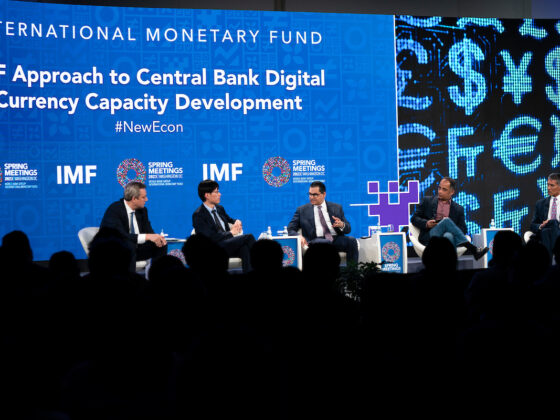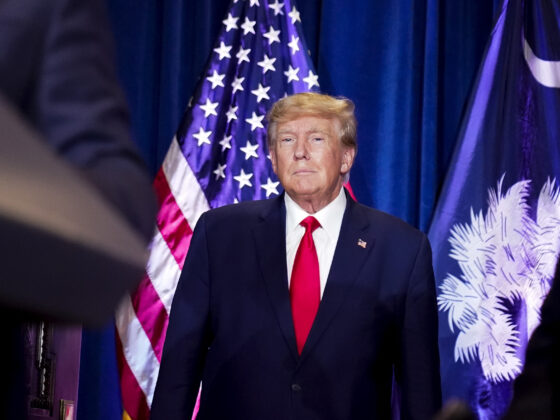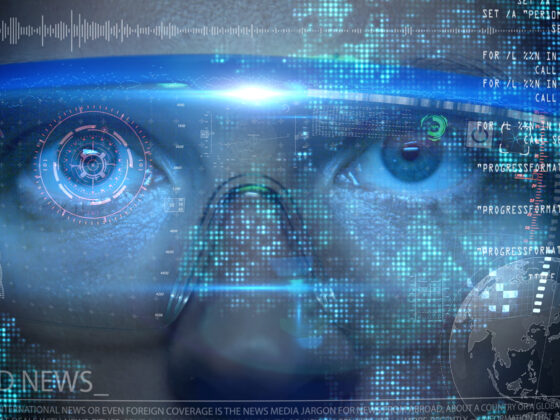Alexis de Tocqueville understood the nature of this dumb, slow march of bankers’ tyranny. In “Democracy in America” (1835) he predicted that the society would fall into a new kind of servitude which, “covers the surface of society with a network of small complicated rules,” which “does not tyrannise but it compresses, enervates, extinguishes and stupefies people, till each nation is reduced to be nothing better than a flock of timid and industrious animals of which the government is the shepherd.”
Vaccine passports are set to introduce a new ‘technological bureaucracy’ that will issue the documents, set the rules and standards, and create the structures of enforcement and these structures will not fade with the Coronavirus. Bureaucracies are resilient and susceptible to mission creep and they will continuously seek justifications for their own relevance.
The more important their role, the bigger their budgets and the greater their powers. Indeed a decentralised digital identity framework and attributes at all costs is ultimately the goal behind the COVID-19 and Vaccine Passport agenda, could there be a cross link into the payments domain? its not clear but it could.
iProov’s CEO Andrew Bud recently suggested that digital health passes may be used for “quite a number of years”. But what could they be setting up?

At first, vaccine passports will certify our SARS-COV2 vaccinations, two shots, three, or maybe more, but soon they will be required to travel and access public venues, they could also be required to unlock our bank accounts, validate our driver’s license, keep employment and keep our water and electricity from being cut, the sky’s the limit with digital identity.
‘Immunization was always going to serve as a platform for digital identity,’ when the ID2020 Digital Identity Alliance unveiled its Digital ID program at its annual summit in New York in 2019. They announced a roll out of a digital identity program with the Government of Bangladesh; Gavi, the Vaccine Alliance; and new partners in academia, government and humanitarian relief. ‘
With the opportunity for immunization to serve as a platform for digital identity’, the program harnessed existing birth registration and vaccination operations to provide new-borns with a portable and persistent biometrically-linked digital identity. The program explored and assessed several leading infant biometric technologies to offer a persistent digital identity from birth, unlocking a potential global public good.

“We are implementing a forward-looking approach to digital identity that gives individuals control over their own personal information, while still building off existing systems and programs,” said Anir Chowdhury, policy advisor at a2i, the Bangladesh government program. “The Government of Bangladesh recognizes that the design of digital identity systems carries far-reaching implications for individuals’ access to services and livelihoods, and we are eager to pioneer this approach.”

Most recently the same Anir Chowdhury wrote that “Vaccine passports will create more freedom, not less, I know from experience – National identification drastically improves public service delivery, in education, welfare and voting, and allows for better accountability and transparency in government” Anir Chowdhury effectively calls for a national centralised digital identification system for public service delivery, education, welfare and voting.
Mr. Anir Chowdhury is the Policy Advisor of UNDP, USAID and Gates Foundation-supported “a2i – innovate for all” Program of the Government of Bangladesh. In this capacity, he leads the formation of a whole-of-society innovation ecosystem in Bangladesh through massive technology deployment, extensive capacity development, integrated policy formulation, whole-of-government institutional reform and an Innovation Fund.
It’s worth noting that on May 21st 2020: Mastercard joined the ID2020 Alliance, a global multi-stakeholder partnership dedicated to enabling everyone to have access to a viable and trusted form of legal identity.

Mastercard is a global payments technology company committed to leading the way towards a ‘World Beyond Cash’.
“We share the belief with ID2020 that digital identity is a fundamental human right that each individual has control over; that digital identity is a crucial step towards financial inclusion and to building a world where technology empowers, enables and protects everyone,”
“We must work together to establish consistency and common standards across the globe that can make this a reality, addressing real challenges faced by people every day and sparking continued innovation.” said Ajay Bhalla, president, Cyber & Intelligence, Mastercard.
Mastercard is working to adapt its payments network to support a system that allows health care providers and other organizations to verify patients’ coronavirus vaccination status. Mastercard and the International Chamber of Commerce are partnering to integrate their digital health data management technology. The collaboration covers a wide range of expertise at the ICC and Mastercard, but would lean heavily on digital ID work at both organizations.
Both firms work with the Good Health Pass Collaborative (which links back to ID2020), a multinational organization that promotes sharing of coronavirus test results and vaccination statuses. The Good Health Pass Collaborative includes Hyperledger and IBM, and more than a dozen firms and collaboratives that work on blockchain and digital ID projects such as Evernym and Hyperledger. Hyperledger has worked with JPMorgan Chase and American Express on blockchain projects, and has advocated for interoperability for blockchain usage in financial services.

Vaccine passports are effectively a way of the state to introduce Industry 4.0 Digital ID technologies, which will also end up mandating vaccines by imposing certification requirements on basic amenities and activities. So much that our individual choices are cut down to the point where we are effectively coerced into medical procedures to progress in our daily lives.
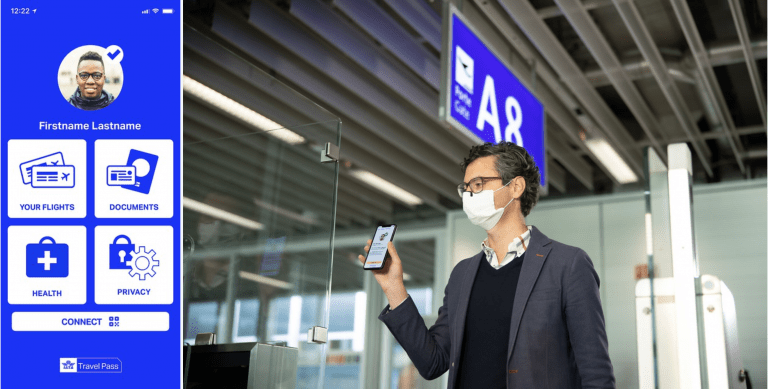
IATA are also looking at how their new digital health passports will end up shaping the future of biometric identification at airports, the ultimate goal it says, is ‘digital travel credentials’. Beyond COVID-19, Nick Careen highlights that the digital travel credentials technology could have a longer-term potential to boost the development of biometrics and touchless processes.
IATA has been developing digital identification for travel as part of its One ID transformational programme for several years now, and the IATA Travel Pass uses the same design principles of its underlying digital One ID. platform. For the passenger, this means that the IATA Travel Pass will also unlock the potential for convenient contactless travel processes from check-in to boarding. According to IATA’s vision, while the need for COVID-19 information verification may eventually disappear, the “IATA Travel Pass will remain as a step forward in the implementation of contactless travel.”
“We built the digital travel credentials on the One ID concept,” says Careen. “We have been talking about this concept for the past five years. The aviation industry was the only one looking into biometrics and we were all under the agreement that this is the way to go, however, governments didn’t want to accept it.”
“Now, everybody wants digital credentials to be the next big thing, but again we’re probably the only ones ready to be the testbed for this. And the health piece is what opens the door to getting to a place where biometrics are widely used. We could just use the digital credentials throughout the travel ecosystem from one airline to the next and from one airport to the other. And we’re now a lot closer to achieving this vision than we were ever before.”

Africa actually became the first testing ground for “Trust Stamp” a combined vaccine recording system and a payment system. The new biometric identity platform partnered with the Gates-funded The GAVI Vaccine Alliance and Mastercard launched in West Africa and combined COVID-19 vaccinations, cashless payments, and potential law enforcement applications.
The program, which was first initially launched in late 2018, will see Trust Stamp’s digital identity platform integrated into the GAVI-Mastercard “Wellness Pass,” a digital vaccination record and identity system that is also linked to Mastercard’s click-to-play system that’s powered by its AI and machine learning technology called NuData.
Mastercard, in addition to professing its commitment to promoting “centralized record keeping of childhood immunization” also describes itself as a leader towards a “World Beyond Cash,” and its partnership with GAVI marks a novel approach towards linking a biometric digital identity system, vaccination records, and a payment system into a single cohesive platform. The effort, since its launch nearly two years ago, has been funded via $3.8 million in GAVI donor funds in addition to a matched donation of the same amount by the Bill and Melinda Gates Foundation.
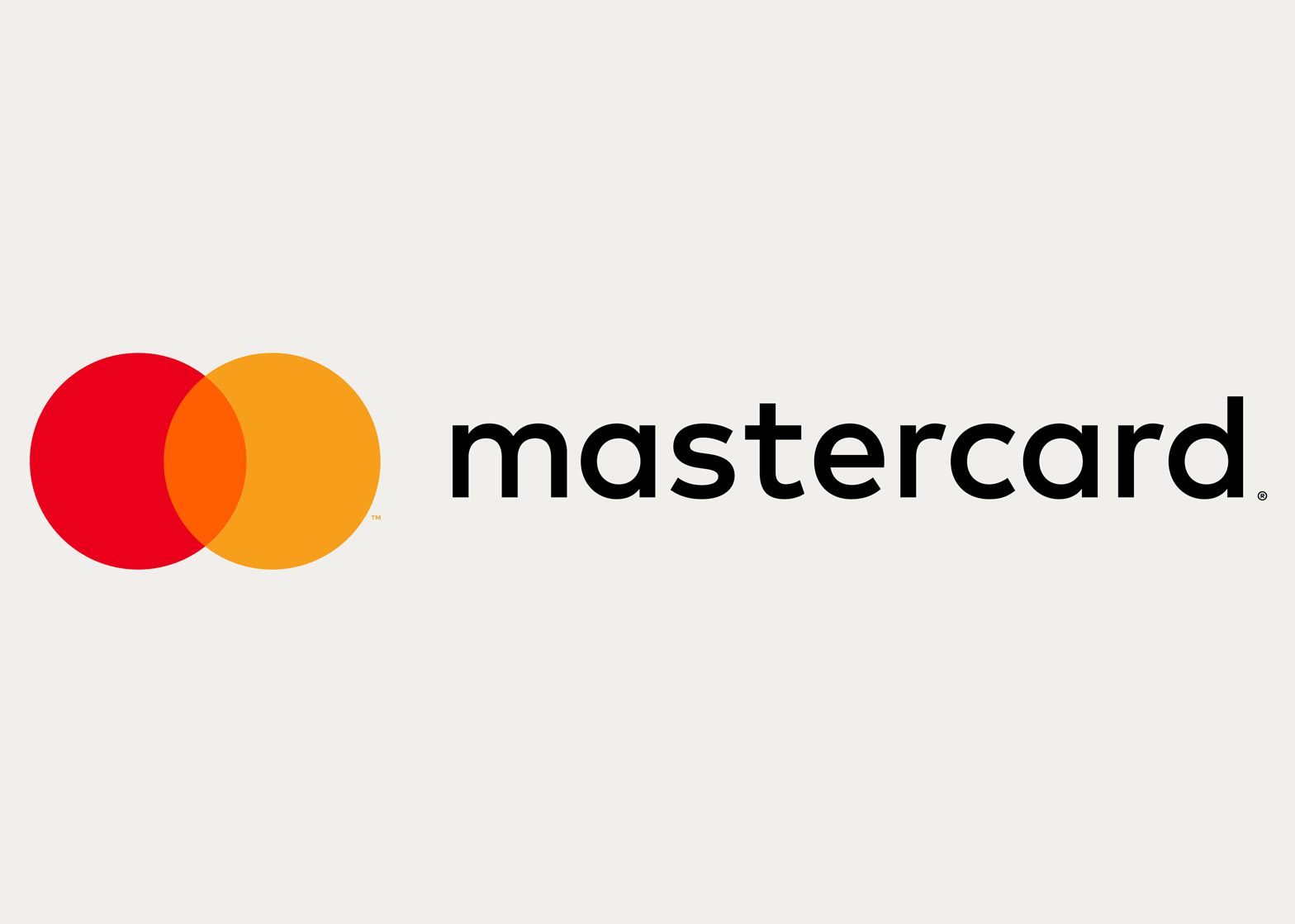
experiences for people as they interact with businesses, service providers,
and communities. This includes:
In their white paper for digital ID, Mastercard describe that access to a user-centric digital identity will unlock new and enhanced experiences for people as they interact with businesses, service providers, and communities. This includes: Financial Services: Improve and speed-up the applicant identification process for establishing a new bank accounts, loans, and or payment service accounts.
Separately the Vaccine Credentials Initiative (VCI) said it wants to develop technology that enables individuals to obtain an encrypted digital copy of their immunization credentials that can be stored in a digital wallet of their choice, such as the Apple Wallet or Google Pay.

Britain is also stepping closer at creating its own digital currency “We’re launching a new taskforce between the Treasury and the Bank of England to coordinate exploratory work on a potential central bank digital currency (CBDC),” Britain’s finance minister Rishi Sunak told a financial industry conference. The BoE said that it and the government had not yet decided on whether to introduce a CBDC in the UK, and that it would engage widely with stakeholders on the benefits, risks and practicalities of doing so.
Could these new Digital ID’s be required for CBDC at a later date? after all they would all be running on the same privacy by design blockchain platforms. Why the rush to get us onto blockchain in the first place? onto digital ID services?
‘Every aspect’ of human liberty is ‘threatened’ by the these digital vaccine passports. Today, the slithering technological tyranny has disguised its actions as a fight against a deadly virus. If the virus outlives its usefulness, then there would be other disguises: domestic extremism, climate change, but we must quickly wise up and see these disguises for what they are and reject thier sinister agenda.
“Freedom is never more than one generation away from extinction, It must be fought for, protected, and handed on [to our children] for them to do the same.” – Ronald Reagan





